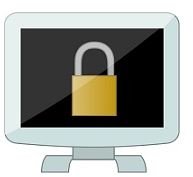Privacy On Your Computer: Clean Up History
Why History is Stored
The main purpose behind storing your browsing history is for your own records. Unless you bookmark a website, you may forget the address. Suddenly you want to visit a site you went to a few days ago, only to discover you can’t remember the URL. Open your history and you can view all the pages you went to, typically by date. Think of it as temporary bookmarking. Most browsers, such as Internet Explorer, Firefox and Chrome, delete history after a certain amount of time by default to save space on your computer.
By default, no passwords are stored. However, auto-fill features on browsers store almost all other types of information. The only information not stored are items entered on secured forms, such as credit card numbers. This helps you enter information in forms faster. You’ll also notice that when you start to type a URL or enter a user name, possible matches from this stored information appear so you do not always have to type the same things over and over.
The idea is to make life easier for users. The less you have to type or remember, the better. However, easier isn’t always better. Easy sacrifices privacy in the case of computer history.
Image Credits: WikiMedia Commons / Lunarbunny
Why You Should Delete Your History
You may think you don’t have to worry about your history at all if the browser deletes it anyway. Take a minute to consider how many sites you visit within a few weeks or a month, which is the usual time span browsers keep your information. Not only are all your regular activities listed, but at this point, finding anything in your history becomes almost impossible.
Hackers can easily discover what you do, where you have accounts and even discover your account information from your computer history and other stored information. The less information available, the less they can find. This makes you less of a target.
Sometimes the problem is actually in your own home. If multiple people use the same computer, especially the same user account, everyone has access to the same history. If you are trying to shop for gifts or plan a surprise for someone, you don’t want them discovering anything before hand. If you’re not concerned about outside privacy, at least consider privacy in your own home.
If privacy isn’t really a concern at all, take into account the space and clutter. Though all the stored information and computer history take up very little space per file, it can add up. Part of regular computer maintenance to keep your computer running at its best is to clean up your history.
You are not required to store any information, except temporary Internet files and history. Even these can be deleted as soon as you close your browser window. Any other information, including auto-fill data, isn’t required.
How To Clean Up
Now that you’re ready to tackle Internet privacy on your computer, let’s look at several methods for cleaning up your computer history.
The first method requires you to manually delete the history from your browser. This removes your history, cookies, temporary Internet files and in some cases, auto-fill data. The last is optional. In the same area of your browser’s settings, choose to delete history and other files each time your browser closes for optimal privacy and security. You can also choose whether to use auto-fill features or not.
The second method is easier and removes all your history from multiple browsers at once. This is perfect if you choose to use two or more different Internet browsers. One of the best free Internet activity cleaners available is CCleaner. It also deletes other unnecessary files from your computer to keep it as clean as possible. Alternately, there are fee based cleaners available as well, but for the home user, CCleaner works well.
If you don’t want to have to remember to do any of these things yourself, set your browser to automatically delete your history upon closing. Also edit your settings to store no information, such as user names or addresses. If everything is being deleted automatically and no other data is being stored, your history stays clean and your privacy remains in tact.
Resources and References
Clean History - Clear History Guide
